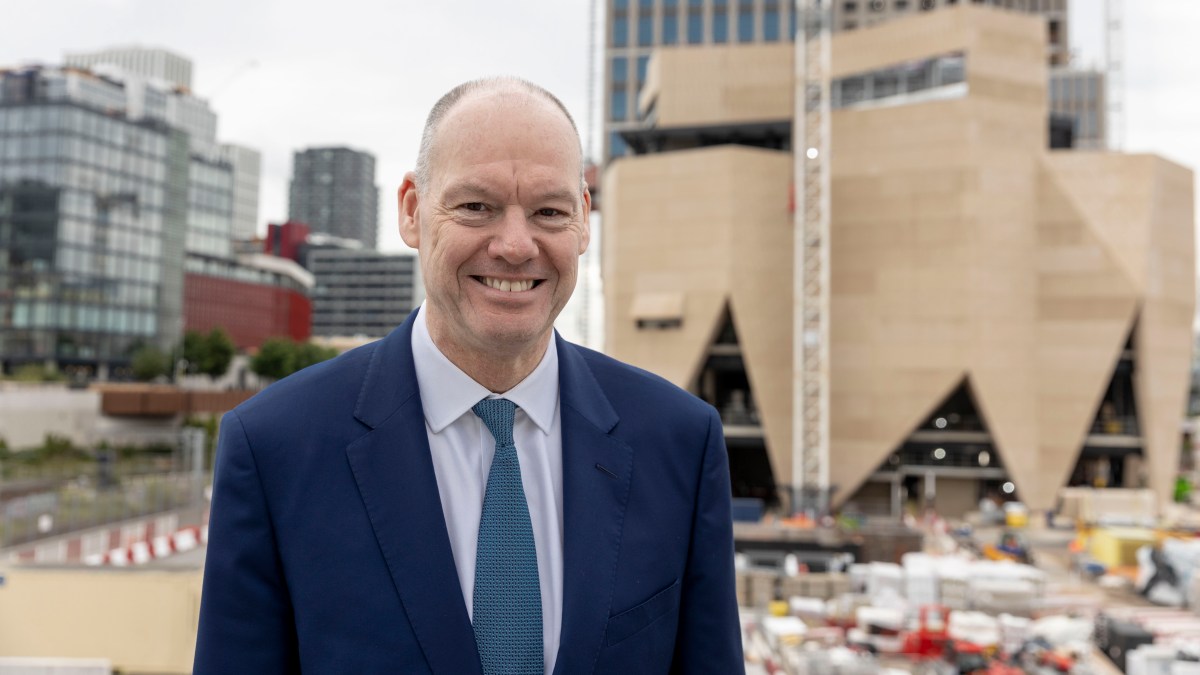From the London Eye and the 2012 Olympics, to The Shard and Battersea Power Station, Mace has been involved in some of Britain’s best-known building projects since it was formed 35 years ago — and has remained proudly independent.
All that changed last month, when Mace sold a 75 per cent stake in its consulting arm to an “alternatives fund” run by the Wall Street investment bank Goldman Sachs. Sources familiar with the situation said that the sale valued the business at nearly $1 billion.
Mace Group chairman Mark Reynolds is tight-lipped when it comes to talking about valuation, but he is far more unequivocal about the nature of his new shareholder. “It’s not a hedge fund, it’s private equity,” he remarked, grumpily.
The distinction is important to Reynolds, 62, who joined Mace as a project manager in 1996, and took over the helm in 2013.
“I now have a strategic partner who’s got far deeper pockets, who can help us grow and expand,” he insisted. “The reason why we’ve done this is we wanted to become the leading global delivery partner.”
After a pause, he repeated the words “the leading global delivery partner,” before shaking his head and smiling at himself. “Yes, it’s a bit of a cliché phrase.”
Mace was formed in 1990 by a group of five former directors of the housebuilder Bovis. These days, Reynolds is one of four primary shareholders in Mace Group. The company’s big break came when it was selected to oversee the building of British Airways’ Waterside headquarters outside Heathrow airport.
While Mace moved on to other high-profile projects in the UK, it also began to venture abroad, building the Venetian hotel in Macau and Ain Dubai, the world’s largest and tallest observation wheel. More recent projects at home include the Tate Modern Extension in 2016 and the Tottenham Hotspur Stadium two years later.

It’s not Venice — it’s the Venetian hotel and casino in Macau
JUI-CHI CHAN/GETTY IMAGES
The Goldman deal means that subsidiary Mace Consult — the group’s largest and most profitable division — will be carved out. Reynolds and his incumbents will retain a 25 per cent interest. “I don’t like the word carve-out,” he said. “But that’s basically what we are doing.”
Mace Consult employs about 5,500 people. It delivered £78 million of profit on £687 million of revenue last year. Mace Construct, which will remain wholly owned by the group, employs roughly 2,000 people and made a £16 million profit on revenue of £2.1 billion.
The group has established a prominent position in the Middle East and has enjoyed success in Asia, particularly in Hong Kong, the Philippines and Malaysia.
It has not been all plain sailing, however. Earlier this year the Serious Fraud Office announced an investigation into Blu-3 and former associates of Mace’s constriction arm. Blu-3 and others are suspected of paying over £3 million of bribes to Mace Construct associates in relation to the building of a data centre in the Netherlands for Microsoft.
The US, meanwhile, has proved comparatively elusive. With the firepower from Goldman, Reynolds reckons that Mace Consult is primed for a near-fourfold increase in size. “How many people do we think we need to have in the next five years? I would say 15,000-20,000 across the globe.”
Reynolds does not seem short of ambition. Such growth is likely to come from a flurry of bolt-on deals in the US and elsewhere. As UK construction activity shrank to a five-year low last week, US president Donald Trump has put plans to “build baby, build” at the heart of rejuvenating the American economy.
• Emma Duncan: ‘Build, baby, build’ should be the new slogan for liberals
But is he not worried about private equity’s reputation for demanding short-term returns and loading up businesses with debt? “I was to begin with,” he said. “But when we actually worked through the process … with Goldmans, no, I wasn’t. They’re not going to overburden us with debt. We’ve actually been quite cautious around that.”
Away from the day job, Reynolds has a reputation for being a businessman who has the ear of the government. Reynolds led Labour’s infrastructure review before last year’s election and co-chairs the Construction Skills Mission Board for Rachel Reeves. Reynolds’ appointment in March was cited as evidence that “we are gripping the lack of skilled construction workers”, the chancellor said.
Nevertheless, he makes no secret of the fact that Sir Keir Starmer’s administration has endured a difficult first year in government.
“They’re listening. They’re trying. They just need some help,” Reynolds said. “Industry and government need to work together more closely. The government has got to stop transmitting, and industry has got to stop transmitting, and you’ve got to find solutions to these problems.”
So why is he focusing his growth ambitions overseas rather than helping those in Westminster that he has sympathy for?
“If you look at the [government’s] ten-year infrastructure strategy that was put in place a month ago… there’s only two programmes we’re not involved with,” he said. “[So] our growth opportunity is going to have to be beyond Europe.”
Reynolds insists that people should make no mistake about the significance of the Goldman deal. “This is fantastic recognition for a UK company,” he said.
